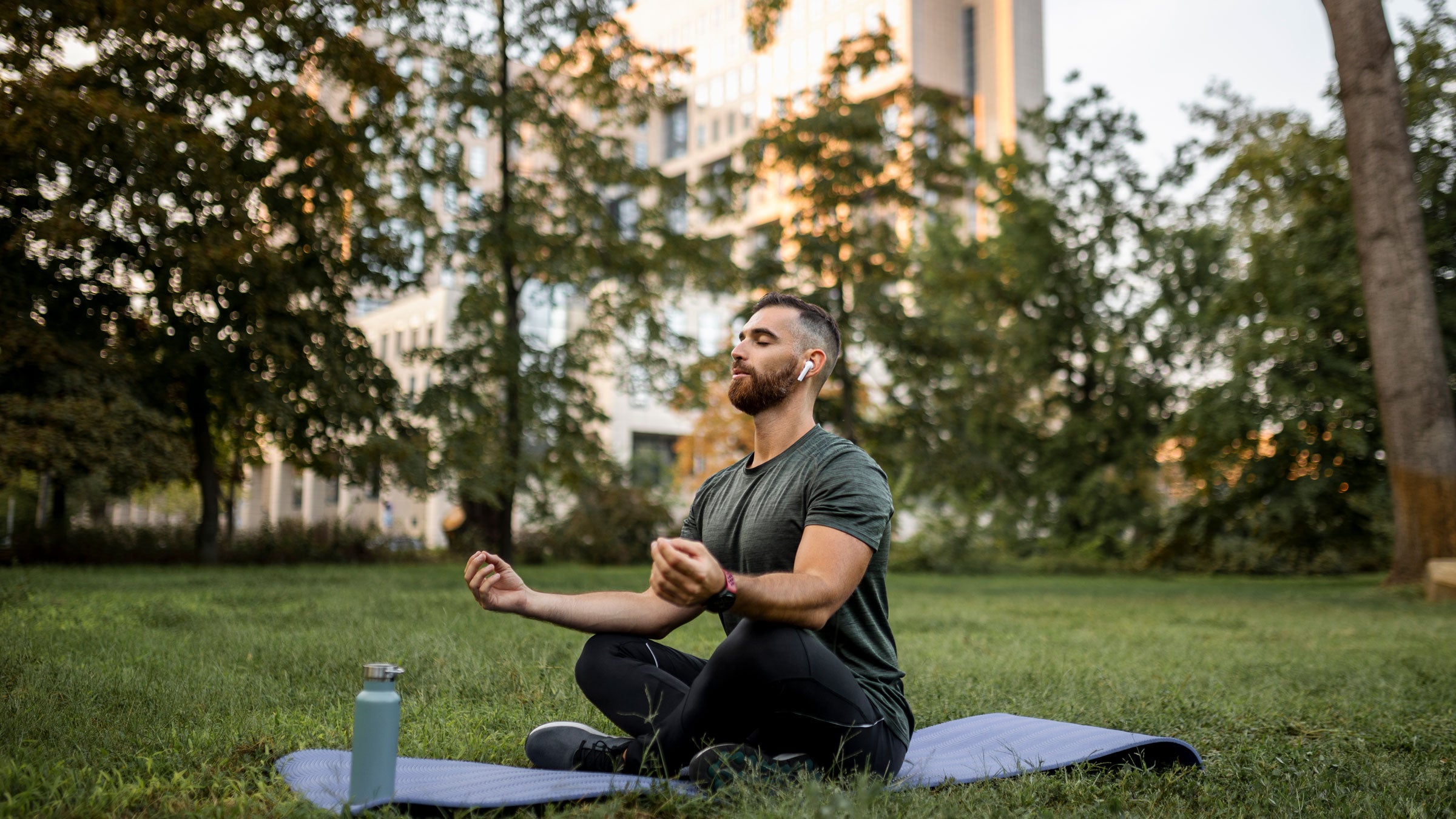The Influence of the Bath Environment on Meditation and Its Impact on Emotional Balance

The Therapeutic Dimensions of the Bathing Experience
Imagine stepping into a space where the gentle lapping of water creates a rhythm that resonates with your innermost thoughts. The bath environment is not just a place for physical cleansing but serves as a transformative backdrop for meditation, profoundly impacting emotional equilibrium.
In Nigeria, a country characterized by its vibrant yet often overwhelming hustle and bustle, introducing a bath into your meditation routine can yield remarkable benefits that bolster mental wellness and emotional stability. Consider the following advantages:
- Enhanced relaxation: Submerging in warm water can effectively ease muscle tension and invite a state of calm, making it easier to sink into a meditative mindset. This soothing effect can be particularly beneficial after a long day navigating the challenges of urban life in cities like Lagos or Abuja.
- Improved mood: The serene atmosphere created by a tranquil bath setting can elevate serotonin levels—a neurotransmitter associated with feelings of happiness. This is especially important in a fast-paced society where stress can dim the joys of daily life.
- Heightened mindfulness: The immersive quality of a bath encourages mindfulness and presence, enabling individuals to focus fully on their thoughts and surroundings without distraction. This mindful approach can help foster a deeper connection to oneself and one’s environment.
Culturally, the recognition of the therapeutic benefits of bathing spans historical and contemporary practices. In Nigeria, traditional Yoruba rituals often include water as a purifying element, deeply integrated into spiritual and physical healing processes. These customs highlight a long-standing connection between water, well-being, and mindfulness, a connection echoed in practices worldwide.
The ambience of your bathing space—its lighting, aromas, and sounds—forms a sanctuary that promotes introspection and emotional exploration. Soft candlelight can create a peaceful glow, while essential oils like lavender or eucalyptus fill the air with calming scents, enhancing relaxation. The addition of gentle music or nature sounds can add to the atmospheric experience, transforming an ordinary bath into a holistic, meditative retreat.
As you explore integrating bath meditation into your routine, remember that the possibilities are as varied as the individual. Investigate different rituals, try new scents, or alternate lighting to discover what resonates most with you. This unique approach to meditation can lead to a profound understanding of your emotions, helping maintain and improve your overall emotional balance.
ADDITIONAL INSIGHTS: Expand your understanding here
The Bath Environment: A Catalyst for Mindfulness and Emotional Healing
The bath environment operates as more than a mere physical space; it evolves into a sanctuary that promotes mindfulness and emotional healing. Engaging in meditation within this tranquil setting can usher in a wave of positivity, dramatically influencing one’s emotional balance. This process is particularly vital in Nigeria, where individuals often face daily stressors influenced by the fast-paced lifestyle, economic challenges, and social pressures.
A bath infused with meditative practices encourages a sense of inner peace and emotional clarity. Here are several key elements of the bath environment that enhance meditation experiences and contribute positively to emotional well-being:
- Temperature: The warmth of the water has therapeutic qualities that can help relax the muscles and calm the mind. Studies suggest that hydrotherapy can lead to significant drops in cortisol levels, the stress hormone, promoting a more peaceful mental state.
- Aromatherapy: Incorporating scents such as lavender, chamomile, or even traditional Nigerian herbal mixtures can stimulate the olfactory senses, facilitating relaxation and improving mood. The ritualistic use of these aromas can evoke feelings of nostalgia and comfort, grounding individuals emotionally.
- Visual Elements: The visual ambiance of a bath can greatly affect mood and mindset. Soft lighting, whether from candles or recessed fixtures, can create an inviting space for meditation. Nigerian artistry through colorful mosaics or traditional cloths can further enhance the visual appeal, making it a personal and culturally significant refuge.
- Soundscape: The gentle gurgling of water or calming soundscapes of nature can transport the mind to a peaceful place, fostering mindfulness. For instance, recordings of rain or birdsong can help individuals connect with their surroundings, leading to improved focus and emotional openness.
Incorporating these elements into your bath meditation rituals can pave the way for deeper emotional insights and a healthier mental state. Traditional practices demonstrate that water is not just a physical element but holds a sacred status in many cultures, including that of the Yoruba people, where water symbolizes purity and renewal.
It is essential to create a customized bath environment that resonates with your personal essence. Whether it’s adjusting the light to suit your mood or experimenting with various scents to see which ones evoke tranquility, this discovery process can enhance your meditation practice, contributing to improved emotional balance.
As you navigate the intricacies of emotional wellness in a demanding society like Nigeria, embracing the bath environment as a meditative sanctuary offers a unique opportunity for self-reflection and emotional healing. With each bath, you can cultivate a serene space that not only revitalizes the body but also profoundly nourishes the mind and spirit.
The Bath Environment: A Gateway to Enhanced Meditation
Environments play a critical role in facilitating meditation practices, particularly when considering the bath environment. The soothing sounds of water, combined with the gentle warmth, create a serene atmosphere ideal for meditation. An effective bath setup can significantly enhance the meditative experience, leading to improved emotional balance. Research suggests that the brain responds positively to calming environments, allowing individuals to attain deeper meditative states.
Connection Between Bathing and Emotional Well-Being
Bathing is not merely a cleansing ritual but a therapeutic practice. It promotes relaxation by reducing levels of the stress hormone, cortisol, and increasing the production of serotonin, known as the “feel-good” hormone. This biological response fosters a sense of tranquility. When combined with meditation, the benefits are amplified, helping individuals to process their emotions more effectively, leading to enhanced resilience against stress.
Elements of the Bath Environment that Foster Meditation
Key elements such as temperature, lighting, and scents play paramount roles in creating an optimal bathing environment for meditation. A warm bath opens up the pores and increases blood circulation, while dim lighting sets a calming ambiance. Additionally, natural fragrances like lavender or chamomile can further enhance relaxation and focus during meditation. These aspects contribute to not just physical comfort, but a profound mental state conducive to deeper reflection.
| Advantages | Details |
|---|---|
| Enhanced Relaxation | The bath environment naturally promotes relaxation, essential for effective meditation. |
| Improved Emotional Regulation | Meditation in the bath can lead to better emotional balance, helping to process and manage feelings. |
Practical Applications
Incorporating meditation into bathing routines can be a transformative experience. Practitioners are encouraged to set a specific time for their baths, creating a regular practice that elevates both physical and emotional well-being. By intentionally focusing on the sensations of the bathwater and the sounds around them, individuals can engage in mindfulness that enhances the benefits of both practices.
CHECK OUT: Click here to explore more
Transformative Effects of Bath Meditation on Emotional Well-Being
Delving deeper into the meditative potential of the bath environment reveals transformative effects that extend beyond mere relaxation. The combination of water, intentional mindfulness practices, and sensory engagement initiates a profound journey toward emotional well-being. As the bath becomes a space for self-exploration, individuals often report an enhanced understanding of their emotions and triggers.
Studies indicate that engaging in meditation while soaking in warm water fosters heightened neuroplasticity, the brain’s ability to reorganize itself by forming new neural connections. This capability is particularly beneficial for individuals grappling with emotional challenges. By incorporating meditation into their bathing rituals, individuals can cultivate a healthy mindset, promoting resilience to stressors prevalent in Nigerian society.
The ritualistic nature of bath meditation creates a sacred space that encourages individuals to reflect upon their thoughts and emotions. Much like traditional ceremonies among various Nigerian cultures, this act of ‘taking a bath’ can serve as a spiritual cleansing. This concept is deeply rooted in the customs of ethnic groups, where water represents purification and renewal. Engaging in such a ritual can produce cathartic experiences, allowing individuals to release pent-up emotions and gain clarity.
In Nigeria, where mental health is often stigmatized, it is crucial to recognize the role of simple self-care practices like bath meditation. Combining meditation with hydrotherapy can initiate the body’s relaxation response, effectively lowering heart rates and promoting feelings of joy and safety. Participants in workshops focused on wellness have shared that deep breathing exercises done during baths have aided in reducing anxiety and enhancing overall emotional regulation.
Moreover, the impact of a personalized bath meditation experience cannot be understated. Customizing these rituals to suit individual needs—whether through the addition of traditional Nigerian songs, soft background music, or personal affirmations—deepens the emotional connection within the space. Each session becomes an intimate rendezvous with oneself, fostering self-love and awareness that propagate emotional balance.
Engaging with local artisans to curate bath space elements can also enhance the meditative experience. Incorporating culturally significant items, such as handmade soap infused with local botanicals, not only elevates the sensory enjoyment but also taps into rich historical narratives. This use of indigenous materials fosters a deeper connection to roots, invoking a sense of belonging that can be especially comforting in times of stress.
As the society in Nigeria evolves, embracing bath meditation as a component of holistic wellness may prompt a cultural shift in the perception and practice of mental health. Such practices pave the way for enriching conversations around emotional balance and highlight the necessity of prioritizing self-care and emotional introspection in a fast-paced world.
In investigating these elements, individuals can uncover that the ritual of bathing, coupled with mindfulness and emotional reflection, holds profound potential for nurturing a stable emotional state. Hence, the bath environment transforms into an essential tool for cultivating resilience and a happier, healthier mind.
YOU MAY ALSO LIKE: Read read another article
Conclusion: A Pathway to Emotional Balance through Bath Meditation
As we’ve explored, the bath environment offers a unique and transformative backdrop for meditation, significantly impacting emotional balance and mental well-being. The fusion of water’s calming properties with intentional mindfulness practices creates a sanctuary for self-discovery and emotional regulation. By utilizing this sacred space, individuals in Nigeria can unravel and address their emotional complexities, fostering a deeper connection with themselves.
Bath meditation serves not only as a method for relaxation but as an avenue for reshaping one’s mental landscape through neuroplasticity. As individuals engage in practices like deep breathing amidst the soothing warmth of water, they can experience significant relief from anxiety and stress—a critical consideration in a society where mental health discussions are often overshadowed by stigma.
Moreover, the ability to personalize bath meditation rituals—through the incorporation of traditional songs, meaningful affirmations, or culturally significant items—caters to the emotional needs of individuals, turning each session into a powerful moment of self-care and introspection. These practices cultivate an emotional sanctuary, promoting self-love and resilience in the face of life’s challenges.
In conclusion, as Nigeria evolves and embraces broader conversations around mental health, integrating practices like bath meditation into daily routines can act as a catalyst for positive change. It underscores the importance of self-care and emotional awareness in achieving a balanced life. Recognizing the influence of the bath environment on meditation reveals a profound potential for healing, urging individuals to rediscover the nurturing essence of water as a pathway to emotional equilibrium.



